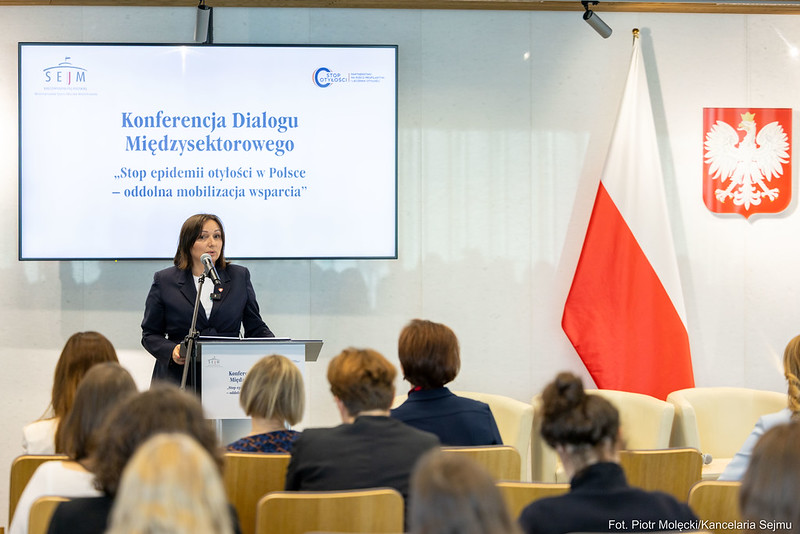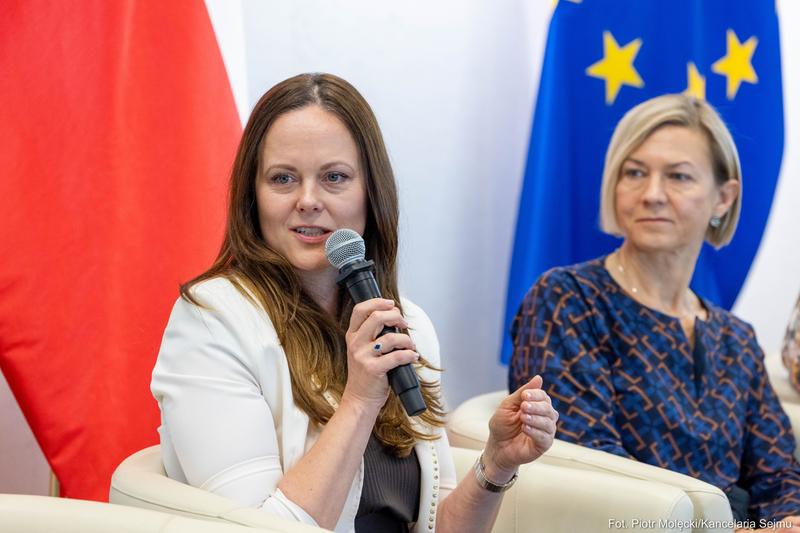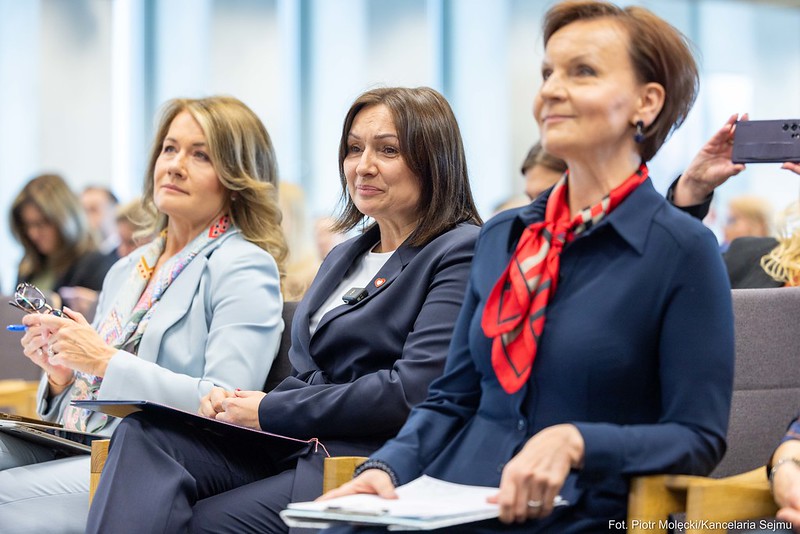Behind us is the intersectoral dialogue conference of the STOP Obesity Partnership, in
this year under the guiding title “Stop the obesity epidemic in Poland – top-down
leadership and bottom-up mobilization of support”. The conference, which united
representatives of science, central and local government, business and
social partners, was held under the Honorary Patronage of Ms. Monika Wielichowska,
Deputy Speaker of the Polish Parliament.
We are proud that the conference attracted nearly 350 guests stationary and remote,
and expert sessions provided valuable conclusions and recommendations – will be important
azimuths of our further efforts to shape the
social ecosystem conducive to health. To publicize the key content, we will be presenting the individual sessions in the following
weeks with summary
conclusions and recommendations. We invite you to read and engage in dialogue!
“Health as a reference for all activities – local governments to eliminate
inequalities” was the title of the first session on May 19, which featured:
- Dr. Aleksandra Niedzielska, Gdansk Center for Health Promotion and Prevention
Addictions - Marta Kubisz, City Hall of Rybnik
- Katarzyna Kretkowska, Marshal’s Office of the Wielkopolska Region
- Anna Auksel-Sekutowicz, Councilwoman of the City of Warsaw
- Dr. Piotr Matłosz, College of Medical Sciences, University of Rzeszów
- Artur Prusaczyk, MD, Medical and Diagnostic Center
- Dr. Szymon Kostrzewski, City Council of Lodz
The session was chaired by Dr. Malgorzata Galazka-Sobotka, Dean of the Center for Postgraduate Education of Lazarski University, and Marta Pawlowska, Chairwoman
of the Presidency of the STOP Obesity Partnership.
What main messages were formulated by the speakers?
- Local governments play a key role in shaping health policies, which
should be integrated with other activities of individuals. - It is important to measure the effects of health programs implemented by
local governments in order to assess their effectiveness and make possible adjustments.
Programs are usually not properly validated, and thus are not scalable to
other regions, resulting in duplication of tasks and processes and inefficient
use of funds. - Strategic clarification of needs, consistency in action and long-term
programs are key elements to achieve sustainable results in
eliminating inequality at the local government level. - Cooperation of local governments with NGOs and
public-private partnerships can effectively support and contribute in the long term to
development of health programs. - Health education should be a mandatory subject in schools to
build health awareness from an early age. Introducing an hour-long
lunch break in schools, activating children to prepare food
and engage in physical activity, can significantly improve attitudes and health habits
of children and adolescents.
The examples of health-promoting initiatives of Gdansk, Rybnik,
Lodz and Warsaw presented in the debate show the diversity and comprehensiveness of projects undertaken by local governments. In order for health to truly become a reference for all activities of individuals, it is worth taking urgent steps to create effective pathways for the exchange of best practices and mechanisms for scaling validated pro-health programs.
Welcome to the STOP Obesity Partnership – more at www.stop-otylosci.pl





